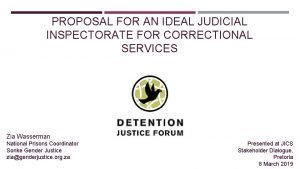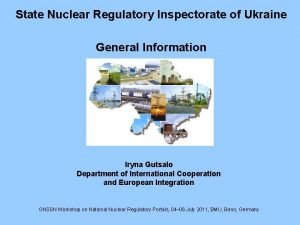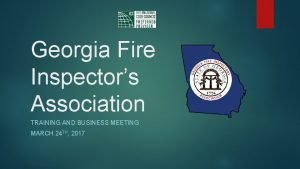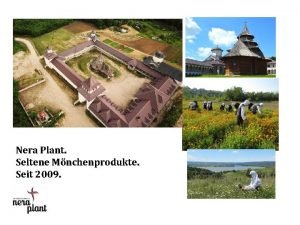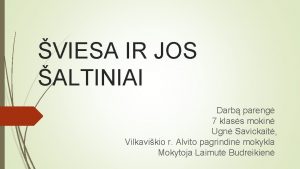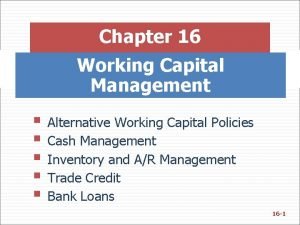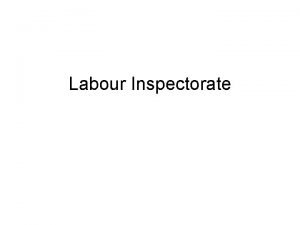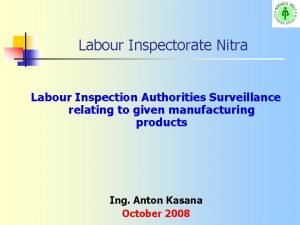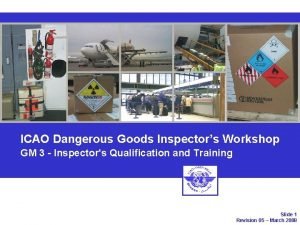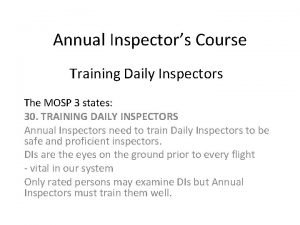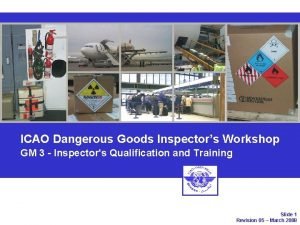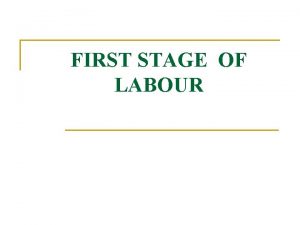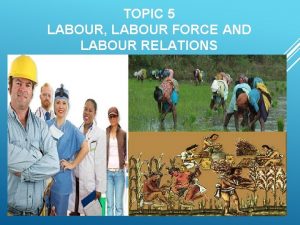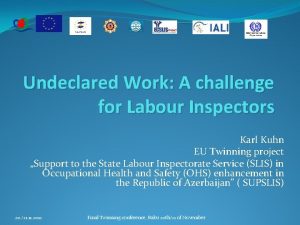b NERA Irish labour inspectorate 57 inspectors 5

b

NERA • Irish labour inspectorate • 57 inspectors • 5 regional offices (Carlow, Dublin, Shannon, Cork, & Sligo) • Achieve compliance through information, inspection & enforcement • 2014: • Provided information directly 50, 000+ people • Completed over 5, 500 inspections • 149 prosecutions initiated in 2014

Inspections • Enforcing statutory legal rights & obligations: • • • National Minimum Wage Act 2000 Payment of Wages Act 1991 Organisation of Working Time Act 1997 Protection of Young Persons (Employment) Act 1996 Employment Permits Acts • Powers: • • • Entry View, take/copy records interview persons Exchange information Offence to obstruct/mislead Inspector

Carrying out Inspections • Produce warrant • Interview under caution • Question employer, employees & inspect records • Refer any issues to relevant authorities • Most visits by appointment • Unannounced day & night visits

Employees Basic Rights • Written Statement of Terms and Conditions • Written statement of Pay (Payslip) • Minimum Wage • Annual Leave/Holidays • Average 48 hr working week • Sunday Premium • Breaks/Rest periods • Minimum Notice before dismissal

Dealing with Non-Compliance • Ask employer to rectify any breaches • Provide reasonable time-frame to become compliant • Close file if compliance achieved • Carry out follow-up inspection (6 -12 months) to ensure compliance is maintained • Prosecute if employer does not rectify breaches or if employer is consistent offender (records, employment permits)

Main breaches of employment law found • Badly kept or no records • No terms & conditions • Failure to pay Statutory Minimum Rate of pay • Benefit for Public Holidays • Employment Permits

Employment Permits • Employment Permits Act 2006 – Authorised Officers • Employment Permit compliance checked as part of NERA Inspections • Employment rights of individuals are not enforceable if the employment contract is invalid • Part 2 of Employment Permits (Amendment) Act 2014 provides remedy for cases similar to Hussein v The Labour Court & Anor [2012]

Domestic workers • Over 3 years of inspections • Cases primarily sourced through official records • 140 inspections since 2011 • Mostly record/terms & conditions breaches • Approx. € 6, 000 wage arrears • Au Pairs & Domestic Work, employment/self employment, overnight hours • Carers Association/SIPTU/MRCI project ‘Developing employment standards for homecare workers’

Forced Labour - Criminal Law (Human Trafficking) Acts 2008 & 2013 • Labour exploitation includes: • forced labour • forcing the person to render services to another • Forced labour: ‘a work or service which is exacted from a person under the menace of any penalty and for which the person has not offered himself or herself voluntarily’

Statutory role • No statutory role for NERA under Criminal Law (Human Trafficking) 2008 & 2013 Acts • Inclusion of labour exploitation clearly allows NERA to contribute to prevention forced labour through enforcement of labour law

What can NERA do to prevent THB? • Information • Identification • Disruption

Identification • Inspectors trained in identifying indicators of THB • Obligation on employers and employees to provide information • Power to enter any workplace • Access to official records & information

Information • Call centre, publications, website, training • Working with other organisations (NGO & State) • Information available in 13 languages/8 language inspectors • Multi lingual inspection card

Disruption • Inspections help create an environment where it is difficult for traffickers to operate • Inspections of vulnerable work sectors (Domestic, Catering, Hotels, Contract Cleaning, Agriculture, Car Washes…. ) • Enforcement of Employment Permits • Joint inspections with Revenue & Social Protection • 10 suspicious cases to Garda in 2014

NERA & THB • Member of Labour Exploitation Working Group • Close working relationship with MRCI and other NGO’s • Information sharing and joint inspections with Garda, Revenue & Department of Social Protection • Training of Garda • Inspectors trained by Garda in indicators of THB • Inspections of sectors where THB may be encountered

Issues • Forced labour v labour exploitation • Victim identification & co-operation • Ability to impose financial & legal consequences for offenders • Early referral/information exchange between all bodies • Greater co-operation and coherence between State & Civil society

John Kelly Regional Manager National Employment Rights Authority (NERA) johnmkelly@employmentrights. ie +353 5991 78942

Achieving a national culture of employment rights compliance
- Slides: 19
